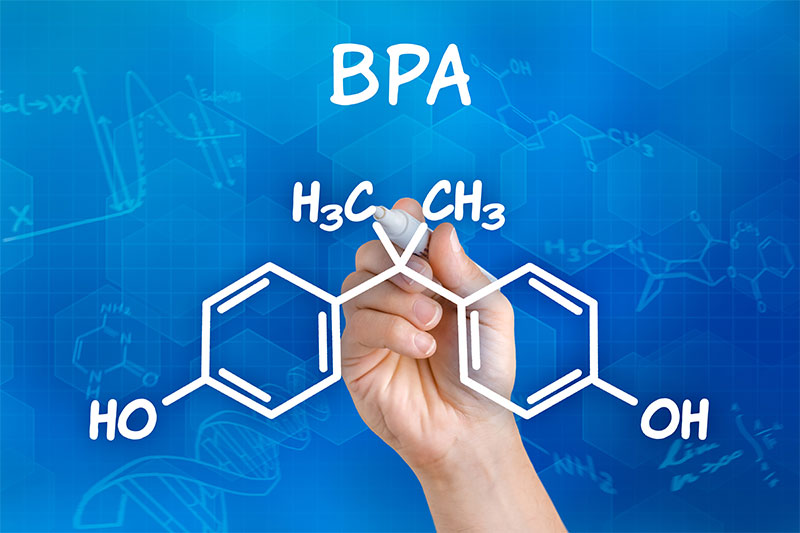If you are concerned about cancer, breast cancer, in particular, you may have done a bit of research into the potential risk factors.
While there are those well-known environmental and behavioral factors such as smoking, drinking alcohol, and obesity, there are many other factors which you might not be aware of if you haven’t delved deep into the subject matter.
One such substance is BPA or bisphenol A. This chemical is an integral part of many hard plastics, as well as some other places where you might not expect to find it, like lining the inside of food cans and on receipts, you get at a cash register.
Breast cancer researchers at Odonate Therapeutics share some insights into this substance and how it is affecting our bodies.
What Is Bisphenol A?
Bisphenol A is an artificial chemical compound which is necessary to produce a variety of resins and plastic polymers.
However, after the material is created, some of the BPA is still left in it, and this residue is causing a lot of problems to people and their health.

How Does BPA Affect Health?
The simplest way to put it is to say that BPA has an effect similar to the hormone estrogen, albeit in a much weaker form. However, this estrogen-like effect that BPA can have on the body triggers breast cells to grow at a much higher rate and can trigger cancerous growths as well.
This is the primary concern about BPA, but its effects are far more expansive and far-reaching.
BPA and Fertility
There are several studies now which show that there is a strong link between infertility (in both men and women) and the increased doses of BPA. Some of these studies also claim that it can directly influence the pregnancy and future generations as well.
BPA and Obesity
As it turns out, BPA doesn’t only mimic estrogen, it can also be confused for some other hormones our bodies naturally excrete. One of these regulates the accumulation of body fat, specifically in the abdominal region.
Higher doses of BPA can actually fool the body to produce more fatty tissue cells than we need. Even though this is a problem in itself, this higher obesity can also lead to, or encourage the development of a myriad of illnesses, including heart disease, diabetes, and even breast cancer.
Are There Alternatives?
Seeing how many studies have been done on this substance, and how many of them found significant negative implications for this substance, a lot of the manufacturers are looking to distance themselves from it.
Instead, they are turning to other chemicals like bisphenol S, or bisphenol F. If that sounds familiar, it is because these substances are closely related to BPA, but the research has not yet proven that these are as harmful as BPA.
How to Limit Your Exposure to BPA
Even though it has not been banned by the FDA, this substance has been singled out as a risk factor by many qualified sources, and you might want to reduce your contact with it as much as possible.
Some ways you can do that is by drinking only from glass or metal containers to drink your water and other drinks and avoid plastic bottles as much as possible.

Avoid canned foods as well, since the substance is used to line the insides of cans. At home, you can reuse glass and metal containers to avoid resorting to plastic ones (like Tupperware).
If you handle receipts from a cash register, make sure to wash your hands afterwards in order to minimize your exposure to this substance.
Even though BPA can be toxic and cause many problems to you, obsessing about every single aspect of your life isn’t exactly healthy either. Find a common ground where you take care of yourself, but don’t let it control your life.









